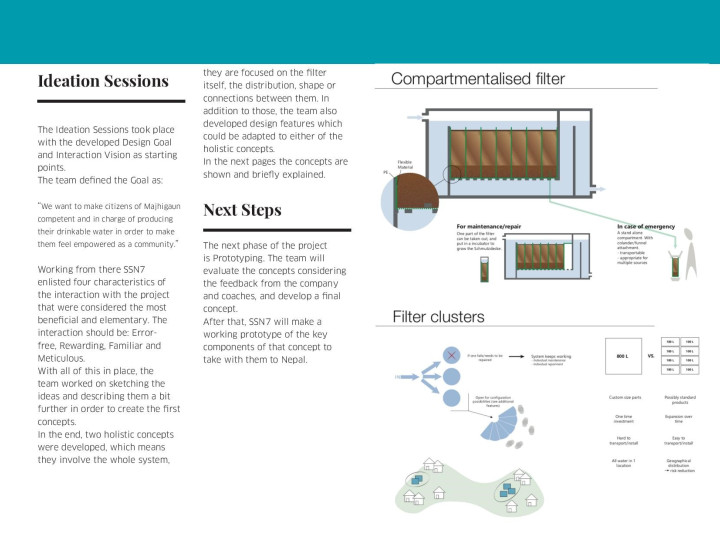Shock Safe Nepal Team 7 is formed by five industrial design Master students from Delft University of Technology.
The Shock Safe Nepal initiative was founded after the earthquake of 2015, with the main objective to rebuild the lost homes, while minimising the risk of collapse during future earthquakes. Until now, 6 multidisciplinary teams of students of TU Delft have travelled to Nepal in order to perform research on how this main objective can best be achieved. Their aim was to provide citizens with a safe place to live in. We, as team 7, aim to improve the quality of the citizens’ lives by integrating utilities to the buildings.
The Problem
Our project focuses on supplying with water the communities for which the SSN houses are built. At this stage, rural villages are not self-sufficent in their water supply. When devastating earthquakes occur, the infrastructures collapse,
compromising the provision of water which relies on petrol and other resources for its transportation to rural areas, as well as good road conditions.
Our approach
We want to achieve water self-sufficiency of the rural communities through human- centered design. By focusing on users needs and culture we aim to design a service that fits their day to day life.
We are looking at design solutions that can be locally manufactured, repaired and maintained. Furthermore, the design must meet the level of shock safety of the SSN houses for which it is developed. We will initially focus our research on Ratankot, the location of the pilot house. We are going to explore the different possibilities of designing a service that will benefit the whole community.






